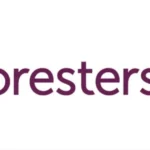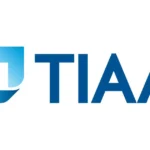Introduction
Starting a rental business involves renting out items or properties to customers for a set period. The goal is to make a profit by providing high-quality items.
Are you interested in starting your own rental business? This article will guide you through the essential steps, from market research to customer service. You’ll learn how to plan, fund, and manage your business effectively.
Keep reading to get valuable tips and practical advice on launching and running a successful rental business. Whether you’re new to the industry or looking to improve your existing operations, this guide will help you get started.
Market Research and Planning

Conducting market research is crucial for understanding the demand for your rental services and identifying your target audience. Start by analyzing local competition, assessing customer needs, and studying market trends. This research will help you identify potential gaps in the market and determine the best approach for your rental business.
Based on your findings, develop a detailed business plan. This plan should include your business goals, target market, marketing strategies, and financial projections. A well-crafted business plan provides direction and helps in securing funding by demonstrating the viability and potential of your business.
Business Plan Development
Creating a comprehensive business plan is essential for setting up a rental business. Your plan should include an executive summary, detailed market analysis, and sections on product or service offerings, marketing strategies, and financial projections. This document will guide your business decisions and help attract potential investors or secure loans.
Incorporate detailed financial projections to estimate startup costs, operational expenses, and expected revenues. These projections will help you manage your finances effectively and set realistic goals for profitability.
Legal and Regulatory Requirements
Understanding and fulfilling legal and regulatory requirements is crucial for operating a rental business legally. Choose an appropriate business structure such as a sole proprietorship, partnership, LLC, or corporation, each with different legal and tax implications.
Register your business and obtain the necessary licenses and permits to comply with local regulations. Additionally, be aware of zoning laws that might affect where you can operate your business.
Financing Your Rental Business
Securing adequate financing is a key step in starting your rental business. Explore various funding options, such as personal savings, business loans, or investors. Prepare a thorough loan application that includes your business plan and financial projections to improve your chances of obtaining funding.
Consider attracting investors who can provide capital in exchange for equity. A compelling pitch that highlights the potential and growth prospects of your business can help you secure investment and support your startup phase.
Choosing Your Rental Inventory

Selecting the right inventory is crucial for the success of your rental business. Determine which items or properties are in high demand and ensure they are of high quality and reliable. Source your inventory from reputable suppliers or manufacturers to ensure you get competitive prices and reliable products.
Implement a system for inventory management to keep track of items, maintenance schedules, and rental status. This will help you manage your inventory efficiently and maintain the quality of your offerings.
Setting Up Your Rental Operations
Setting up your office or storefront involves creating a professional space for customer interactions and inventory display. Implement an inventory management system to track and manage rental items effectively.
Develop clear rental agreements outlining terms, pricing, and responsibilities to avoid disputes and ensure smooth operations.
Proper staff training is essential to ensure your team is knowledgeable about customer service, rental procedures, and operational tasks. This will help maintain a high standard of service and efficient business operations.
How To Start A Junk Removal Business?
Pricing Strategies
Determining rental rates involves a careful balance between covering costs, remaining competitive, and attracting customers. Conduct a competitive analysis to understand what others in your market are charging and set your prices accordingly.
Be prepared to adjust your rates based on seasonal demand, market conditions, and customer feedback.
Consider offering discounts or promotions to draw in new customers and differentiate your business from competitors. This can help build a loyal customer base and drive more rentals.
Marketing and Branding
Developing a strong brand identity is vital for your rental business. Create a professional logo, color scheme, and tagline that reflect your business values and appeal to your target market. Implement a comprehensive marketing strategy that includes both online and offline methods to reach potential customers.
Build a professional website with an easy-to-use booking system and engage in social media marketing to enhance your online presence. Utilize local advertising to increase visibility in your community and attract customers to your rental business.
Customer Service and Management
Providing excellent customer service is essential for building a positive reputation and encouraging repeat business. Train your staff to handle customer inquiries and complaints professionally. Develop strong customer relationships through personalized service and follow-ups.
Consider implementing a loyalty program or customer rewards to retain customers and increase satisfaction. Regularly collect customer feedback to identify areas for improvement and address any issues promptly.
Technology and Tools

Investing in the right technology can streamline your rental operations. Use rental management software to handle inventory tracking, reservations, and billing efficiently. Implement an online booking system to make it easy for customers to rent items or properties.
Choose reliable payment solutions to handle transactions securely. Utilize technology to enhance operational efficiency, improve customer experience, and stay competitive in the market.
Insurance and Risk Management
Obtaining appropriate insurance coverage is crucial for protecting your rental business from potential risks. This may include liability insurance, property insurance, and coverage for damages or theft.
Conduct a risk assessment to identify potential risks and implement measures to mitigate them, such as safety procedures and emergency plans.
Develop a clear process for handling insurance claims and addressing issues related to damage or theft of rental items.
Scaling Your Rental Business
Explore strategies for scaling your rental business, such as expanding your inventory, opening new locations, or adding new services. Consider franchising if you have a successful business model and want to reach new markets.
Form partnerships with other businesses or organizations to increase your reach and attract more customers.
Develop a strategic plan for growth to ensure your business expansion is successful and sustainable.
Performance Monitoring and Improvement
Regularly monitor your business performance using key metrics such as revenue, customer satisfaction, and inventory turnover. Implement a process for continuous improvement based on performance data and customer feedback.
Make adjustments to your business model or operations as needed to enhance efficiency and profitability.
Use performance insights to refine your strategies and ensure long-term success.
Importance of How to Start a Rental Business
Starting a rental business offers significant financial stability and personal satisfaction. Understanding the key steps involved, from market research to operational setup, is crucial for building a successful business. A well-planned and managed rental business can become a valuable asset, providing opportunities for growth and a steady income stream.
Additional Tips
- Stay Informed: Keep up with industry trends and changes in regulations to maintain competitiveness.
- Network: Connect with other rental business owners and industry professionals to gain insights and opportunities.
- Invest in Training: Ensure your staff is well-trained to deliver high-quality service and manage operations effectively.
Pros and Cons of Starting a Rental Business
| Pros | Cons |
| Flexible Business Model: Adapt offerings based on market demand and customer needs. | High Initial Investment: Significant upfront investment required for inventory and setup. |
| Steady Income Potential: Regular rentals can provide a consistent revenue stream. | Maintenance Costs: Ongoing costs for maintaining and repairing rental items. |
| Low Inventory Costs: Renting items reduces the need for large upfront investments compared to selling. | Risk of Damage or Theft: Potential for damage or theft of rental items can impact profitability. |
ANSWER TO KEY QUESTION
1. What types of rental businesses can I start?
You can start various types of rental businesses depending on your interests and market demand. Common options include equipment rental (such as tools or machinery), vehicle rental (cars, trucks, bikes), real estate rental (residential or commercial properties), and event rental (tables, chairs, decorations). Choose a niche that aligns with your expertise and market needs.
2. How much money do I need to start a rental business?
The startup costs for a rental business vary based on the type of rental service and scale of operation. Initial expenses may include purchasing inventory, securing premises, obtaining licenses, and investing in marketing. It’s essential to create a detailed business plan with financial projections to estimate your costs accurately and plan for adequate funding.
3. What legal requirements do I need to consider?
Starting a rental business requires compliance with various legal and regulatory requirements. This includes choosing the right business structure (e.g., LLC, corporation), registering your business name, obtaining necessary licenses and permits, and adhering to local zoning laws. Consult with a legal professional to ensure all legal aspects are covered.
4. How do I set competitive rental prices?
To set competitive rental prices, conduct a market analysis to understand the pricing strategies of similar businesses in your area. Consider factors like your costs, market demand, and the condition of your rental items. Regularly review and adjust your prices based on seasonal trends, customer feedback, and competition.
5. What are some effective ways to market my rental business?
Effective marketing strategies include developing a strong brand identity with a professional logo and website, and engaging in social media marketing to reach potential customers. Implement local advertising strategies, such as flyers or community events, and consider online advertising to increase visibility. Building a positive reputation through excellent customer service and word-of-mouth can also enhance your marketing efforts.
Pricing Strategies for Rental Business
| Pricing Strategy | Description | Example |
| Competitive Pricing | Set prices based on the rates of similar rental businesses in your area. | If local competitors charge $50/day for a car, set a similar rate or slightly lower. |
| Cost-Plus Pricing | Calculate your costs and add a markup to ensure profitability. | If it costs $20 to maintain a tool and you want a 50% profit margin, set a rental price of $30. |
| Tiered Pricing | Offer different levels of service or packages at varying prices. | Basic package for $40/day, premium package for $70/day with additional features. |
| Seasonal Pricing | Adjust prices based on demand fluctuations throughout the year. | Increase rental rates during peak seasons like summer for vacation rentals. |
| Discounts and Promotions | Offer special rates or discounts to attract customers. | Provide a 10% discount for first-time customers or a special rate for long-term rentals. |
Conclusion
Starting a rental business offers a promising opportunity for those looking to enter a flexible and potentially lucrative market. By understanding and implementing the essential steps, such as conducting thorough market research, developing a solid business plan, and adhering to legal requirements, you can lay a strong foundation for your business.
Effective pricing strategies, coupled with robust marketing efforts, are key to attracting customers and ensuring steady revenue.Operational success in the rental business also depends on meticulous inventory management and excellent customer service.
Investing in the right technology and maintaining a focus on insurance and risk management will help protect your assets and enhance operational efficiency. Additionally, scaling your business strategically and continuously monitoring performance will support long-term growth and profitability
Overall, starting a rental business requires careful planning, dedication, and a clear understanding of both the opportunities and challenges involved. With the right approach and a commitment to excellence, you can build a successful rental business that meets market needs and achieves sustainable success.

Hi, I’m Amaliyah-Richard! I’m a dedicated author at Skyvoxes. I hold a Bachelor’s degree in Business, and I love writing about all things business. My aim is to make complex business topics easy to understand and accessible for everyone. Whether you’re a seasoned professional or just starting out, I hope my articles provide you with valuable insights and practical advice.










